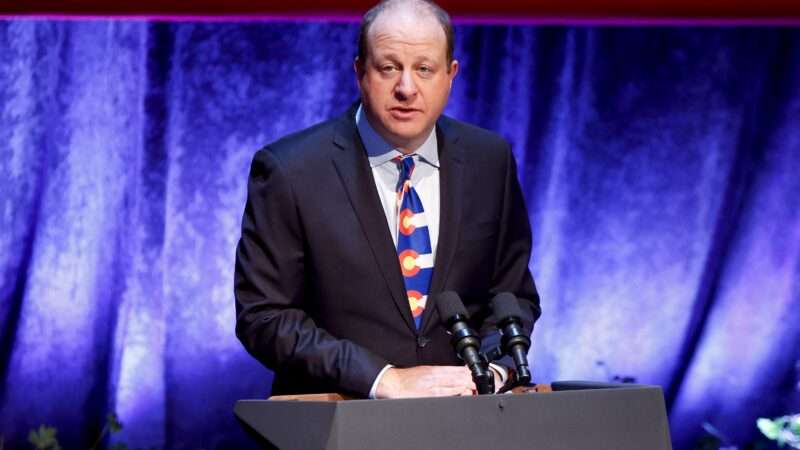
When Coloradans head to the polls in November, they'll be voting on more than just which uninspiring geriatric to send back to the White House. They may also get to pick an entirely different way to vote, by adopting ranked choice voting. But state lawmakers want to delay the effort before the vote can even happen.
Ranked choice voting (RCV) is not a new concept, but it has gained traction in the past few years. On a traditional ballot, voters pick one candidate per office, and whoever gets the most votes is the winner—in most states, even if they don't win an outright majority.
But on an RCV ballot, voters can rank each candidate in order of preference. If one candidate gets over 50 percent of the votes, then that candidate wins. But if no candidate gets an outright majority, then the lowest performer is eliminated, and all ballots that picked him first are retallied with their second choices counted. This continues until a majoritarian winner is declared.
RCV is now used statewide in Alaska, Hawaii, and Maine, plus localities in fourteen other states have also approved its use—including Colorado towns like Boulder and Fort Collins.
Colorado Initiative 310 would authorize the process statewide. Starting in 2026, in an effort to "have more choice to elect candidates who better reflect the will of a majority of the voters," the proposal would replace party primaries for state and federal offices with a "primary election featuring all candidates for those state and federal offices, with the final four candidates advancing to the general elections," where voters could rank the four in their preferred order.
Ranked choice voting is not without detractors: "I will oppose this effort to rig our electoral system in Colorado with everything I have," tweeted Rep. Lauren Boebert (R–Colo.) after the measure was announced. "Ranked choice voting is a scheme launched by well-moneyed interests who are only concerned with their own power and not giving Coloradans a choice at the ballot box."
Former Alaska Gov. Sarah Palin blamed her state's switch to RCV for her defeat in her 2022 race for U.S. Congress. While 17 states allow RCV in some or all elections, nine states have outlawed it since 2022.
Now, lawmakers in Denver are apparently trying to forestall the measure before voters can even weigh in.
"Last-minute provisions added to a broad bipartisan election bill would create a major barrier to efforts to overhaul Colorado's election process," Jesse Paul reported last week at The Colorado Sun. A brief amendment added to Senate Bill 210, which passed both chambers of the state Legislature, "would require a dozen Colorado municipalities in counties of a certain size and with a specific demographic makeup to conduct ranked choice elections," wrote Paul.
The amendment was added by state Rep. Emily Sirota (D–Denver), who called the amendment "a totally fair way to ensure if the voters pass a ballot measure that it is rolled out in a methodical way." The amendment featured contributions from the Colorado County Clerks Association, whose executive director, Matt Crane, told The Colorado Sun that "anytime that you are going to make a seismic change to an election model, it's a bad idea to do it without understanding all the impacts of it."
Not everybody is convinced: A consortium of voting rights organizations, including the League of Women Voters of Colorado and FairVote, which supports the adoption of ranked choice voting, signed a letter to Gov. Jared Polis, urging him to kill the bill.
"[Sirota's] amendment applies a convoluted, and perhaps unmeetable, set of terms and conditions which would indefinitely delay, and likely prevent, implementation," the letter reads. "Creating a phony pretext that gives partisan elected officials the authority to effectively stop implementation of a law approved by voters is very simply wrong."
The post Colorado Hasn't Even Approved Ranked Choice Voting Yet, and Already Lawmakers Are Trying To Delay It appeared first on Reason.com.







